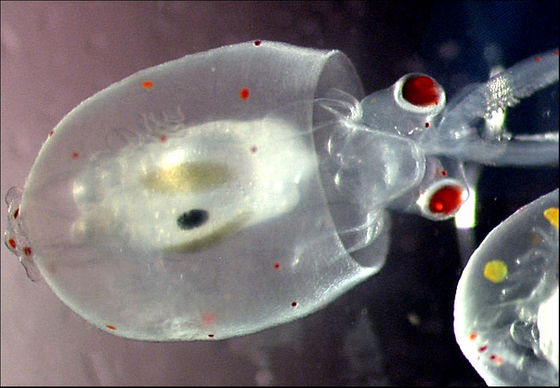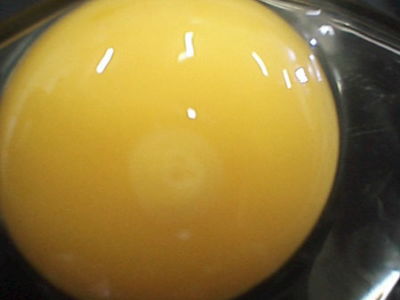The ultimate self-sacrifice of a mother squid is captured on film as she fasts for nine months while holding her eggs and swims until she dies.

The American Schmidt Institute of Oceanography has released a video taken by a submarine of a squid floating in the deep sea with 2,000 to 3,000 eggs. The breeding period for the eggs is up to nine months, during which time the mother squid cannot eat any food at all, and it is said that she swims to protect the eggs while tearing off her own legs, and finally dies while watching the eggs hatch. .
Post-spawning egg care by a squid | Nature
Astonishing Video Gives Rare Glimpse of a Mother Squid's Ultimate Sacrifice : ScienceAlert
https://www.sciencealert.com/astonishing-video-gives-rare-glimpse-of-a-mother-squids-ultimate-sacrifice
The Rare Sight Of A Brooding Squid
https://www.sciencefriday.com/articles/the-rare-sight-of-a-brooding-squid/
Schmidt Ocean Research Institute posted a video of a female Gonatus onyx incubating eggs on its official Instagram account. Please note that this video has been rotated 90 degrees to make it easier to view on Instagram.
View this post on Instagram
It is estimated that it takes 6 to 9 months for the eggs to develop, during which time the mother squid carries 2,000 to 3,000 eggs wrapped in a tube-shaped egg sac in her arm with a lock. While holding the egg firmly, gently extend and retract your arms to pump oxygen-limited deep sea water into the egg.
During incubation, the female squid cannot eat food because her mouth is completely covered with eggs, and she continues to swim relying only on the energy stored in her body. Brad Sabel, a marine biologist at the University of South Florida, and his colleagues in a 2005 paper found that the feeding appendages of the mother squid are missing, and that the mother squid, before spawning, uses its own arms to get out of the way of the eggs. I pointed out that it is possible that the
Although the squid has neutral buoyancy that allows it to float without using energy, it cannot swim quickly while incubating its eggs, making it an easy target for deep-diving marine mammals. In Seibel's research, the mother squid was observed to use its energy to move its arms when it noticed the approach of a submarine, causing the mature eggs to hatch early.
The study also confirmed that as the eggs mature, the muscle and digestive functions of the mother squid gradually decline, making it difficult for the mother squid to complete reproduction once in its life and give birth to its young. It is believed that the eggs die after hatching.

The squid is one of two species of squid known to take care of their eggs after spawning, but some fellow cephalopods have been found to be even more patient in rearing their young.
In a paper published in 2014, Seibel reported on the observation that a deep-sea octopus called Graneledone boreopacifica continued to protect its eggs for 53 months, or four and a half years.







